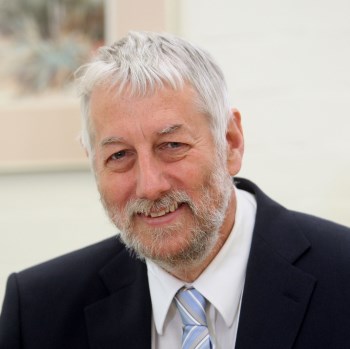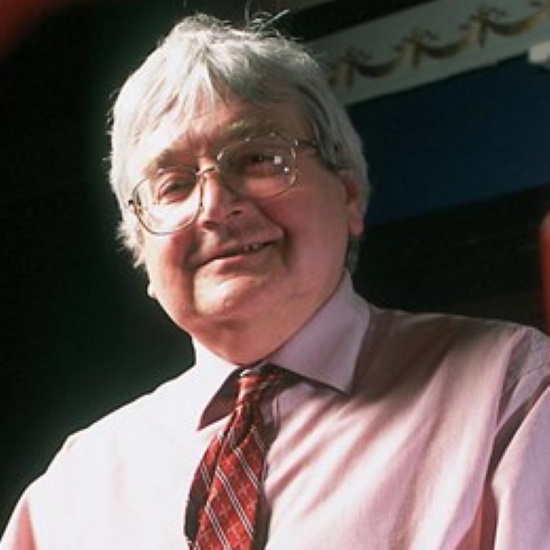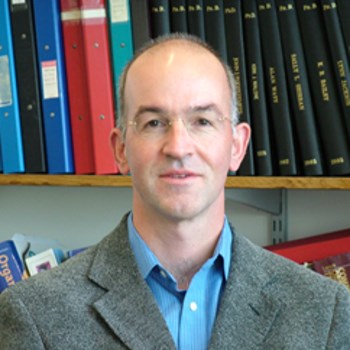Links to external sources may no longer work as intended. The content may not represent the latest thinking in this area or the Society’s current position on the topic.
Catalysis sustaining society's future
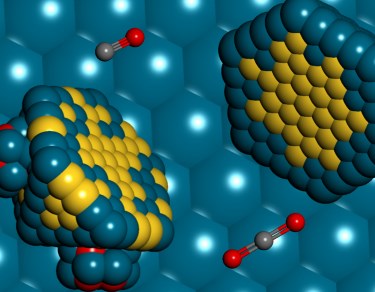
Satellite meeting organised by Professor Graham Hutchings FRS, Professor Richard Catlow FRS and Professor Nicholas Turner
This satellite meeting will address modern developments in designing improved catalysts for environmental benefit by addressing four questions. (i) "How far can we tailor and control active sites?" (ii) "How generally applicable is the concept of single site catalysis" (iii) "Where can biocatalysts be usefully applied in the future” (iv) “Can precious metal catalysts really be replaced with earth abundant materials?”. We will bring together scientists across the breadth of catalysis (heterogeneous, homogeneous and bio) bridging the expertise of chemists, engineers, bio-scientists and theoreticians.
The schedule of talks and organiser and speaker biographies is available below. Recorded audio of the discussion leader comments are also available below.
Prior to this meeting there was a related discussion meeting 'Providing sustainable catalytic solutions for a rapidly changing world' held at the Royal Society, London on 8–9 May 2017.
Enquiries: Contact the Scientific Programmes team
Organisers
Schedule
Chair
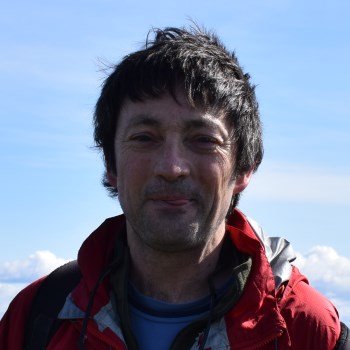
Professor David Lennon, University of Glasgow, UK

Professor David Lennon, University of Glasgow, UK
David graduated from the University of East Anglia (UEA) in 1985 with a BSc in Chemical Sciences. At UEA, he carried out his postgraduate research project under the supervision of Professor MA Chesters. Lennon later moved to University of Texas at Austin where he became a postdoctoral research fellow, collaborating with Professor JM White on research into photochemistry at the gas-solid interface. Between 1990 and 1992, Lennon worked as a postdoctorial research fellow/lecturer in the Chemistry department at University of Western Australia. He returned to UEA to work as a senior research associate in the School of Chemical Sciences between 1992 and 1995, working first in collaboration with Professors MA Chesters and KJ Packer FRS, and then Professor SR Meech on another project. Lennon has been at the University of Glasgow since 1996 where he is now Professor of Physical Chemistry.
| 00:00 - 00:00 |
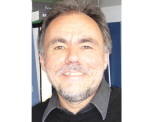
Professor Fraser Armstrong FRS, University of Oxford, UK

Professor Fraser Armstrong FRS, University of Oxford, UKFraser Armstrong obtained his PhD at the University of Leeds with Geoff Sykes then carried out postdoctoral research (1978-1983) with Peter Kroneck (Konstanz), Ralph Wilkins (New Mexico), Helmut Beinert (Madison) and Allen Hill (Oxford). In 1983 he was awarded a Royal Society University Research Fellowship which he held in Oxford until 1989 when he joined the Chemistry Faculty at the University of California, Irvine. He moved to his present position in 1993. His interests are in biological redox chemistry, mechanisms of metalloenzymes and in the application and inspiration afforded by enzymes in future energy technologies. His group has developed a powerful suite of dynamic electrochemical techniques for studying complex electron transfer and catalytic reactions in proteins. His recent research focuses on the atomic-level mechanisms by which hydrogen, carbon and oxygen species are activated by transition metals contained in the active sites of enzymes –using site-directed mutagenesis to alter the second and outer coordination shells. He is co-author of a widely-sold textbook, Inorganic Chemistry – (Shriver & Atkins) now in its 6th edition. He was elected FRS in 2008 and received the Davy Medal in 2012. |
|
|---|---|---|
| 00:00 - 00:00 |
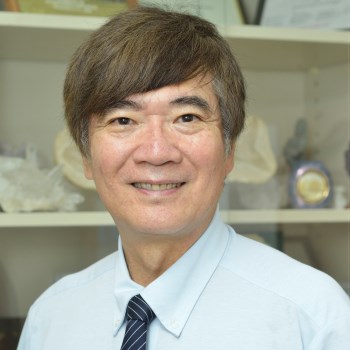
Professor Ted Oyama, CREST, University of Tokyo, Japan

Professor Ted Oyama, CREST, University of Tokyo, JapanS. Ted Oyama earned his bachelor’s degree in chemistry and chemical engineering at Yale University in 1976 working with Gary Haller and his doctorate in chemical engineering at Stanford University in 1981 with Michel Boudart. He currently holds dual appointments in the Chemical Systems Engineering Department at the University of Tokyo and the Chemical Engineering Department at Virginia Tech. His research interests are in the areas of catalytic fuel processing, biomass conversion, steam reforming, gas separation membranes, and membrane reactors. He carries out research on the development of new materials, including novel catalytic materials such as phosphides and advanced inorganic membranes. He concentrates on studying the mechanisms of reaction and permeance using kinetic tools coupled with in situ spectroscopy. He is a recipient a 2009 Humboldt Senior Researcher Prize, 2012 Fellow of the American Chemical Society (ACS), the 2014 ACS Distinguished Researcher Award, the 2014 ACS Storch Award, and 2016 Fellow of the American Association for the Advancement of Science. He served as 2009 Chair of the Division of Petroleum Chemistry of the American Chemical Society, and currently is editor of the Journal of Catalysis, a highly-ranked chemical engineering journal. He has published over 230 refereed papers, seven edited books, and one monograph. |
|
| 00:00 - 00:00 |
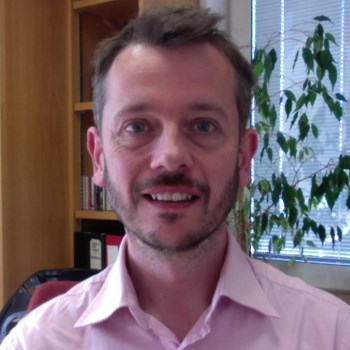
Professor Duncan Wass, University of Bristol, UK

Professor Duncan Wass, University of Bristol, UKDuncan Wass is Professor of Catalysis at the University of Bristol. Raised in rural Leicestershire, he completed his undergraduate studies at the University of Durham, and then studied for his PhD (1995-1998) under the supervision of Professor Vernon Gibson FRS at Imperial College, London. In 1999, he joined BP Chemicals Ltd, working in their laboratories in Sunbury-on-Thames and Brussels on various olefin polymerisation an oligomerisation projects. Duncan joined the School of Chemistry at the University of Bristol in 2004, and was promoted to a personal chair in 2012. His research interests are in organometallic chemistry and homogenous catalysis, specifically transition metal-based frustrated Lewis pairs, new catalysts for bio-alcohol upgrading and autonomous self-healing composite materials. |
|
| 00:00 - 00:00 |

Professor David Lennon, University of Glasgow, UK

Professor David Lennon, University of Glasgow, UKDavid graduated from the University of East Anglia (UEA) in 1985 with a BSc in Chemical Sciences. At UEA, he carried out his postgraduate research project under the supervision of Professor MA Chesters. Lennon later moved to University of Texas at Austin where he became a postdoctoral research fellow, collaborating with Professor JM White on research into photochemistry at the gas-solid interface. Between 1990 and 1992, Lennon worked as a postdoctorial research fellow/lecturer in the Chemistry department at University of Western Australia. He returned to UEA to work as a senior research associate in the School of Chemical Sciences between 1992 and 1995, working first in collaboration with Professors MA Chesters and KJ Packer FRS, and then Professor SR Meech on another project. Lennon has been at the University of Glasgow since 1996 where he is now Professor of Physical Chemistry. |
|
| 09:55 - 10:30 | Discussion | |
| 10:30 - 11:00 | Coffee | |
| 11:00 - 12:30 | Discussion continued |
Chair

Professor Bruce Gates, University of California, Davis, USA

Professor Bruce Gates, University of California, Davis, USA
Professor Gates has been a Distinguished Professor at the University of California, Davis, since 2002. Prior to that Gates has been Assistant Professor, then Professor at the University of Delaware. He later also took up the position of Director of the Center for Catalytic Science and Technology. Gates obtained his first degree at the University of California, Berkeley, and his PhD at the University of Washington. Professor Gates has many honors including being the recipient of the American Chemical Society Gabor A. Somorjai Award for Creative Research in Catalysis in 2004 and the Michigan Catalysis Society Guiseppe Parravano Memorial Award in 2005.
| 00:00 - 00:00 |
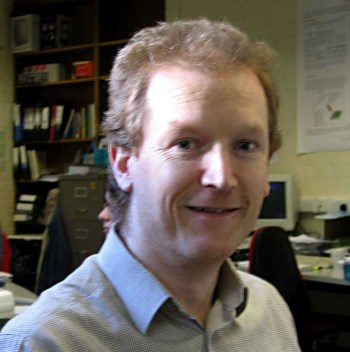
Dr David J Willock, CCI Cardiff University, UK

Dr David J Willock, CCI Cardiff University, UKDavid Willock is a Reader in Theoretical and Computational Chemistry at Cardiff University and has been an active researcher in the area of computational chemistry for more than 25 years. He is a member of the Cardiff Catalysis Institute collaborating closely with experimental research teams on structure and reactivity involving metals, oxides and carbon based materials. His work covers the use of theoretical chemistry to understand the mechanism reactions over heterogeneous catalysis through the linking of calculation and experimental data analysis. He has a particular interest in oxidation chemistry using microporous materials, the interaction of metal nanoparticles with support materials and green chemistry for the conversion of biomass to chemicals and fuels. |
|
|---|---|---|
| 00:00 - 00:00 |

Professor Bruce Gates, University of California, Davis, USA

Professor Bruce Gates, University of California, Davis, USAProfessor Gates has been a Distinguished Professor at the University of California, Davis, since 2002. Prior to that Gates has been Assistant Professor, then Professor at the University of Delaware. He later also took up the position of Director of the Center for Catalytic Science and Technology. Gates obtained his first degree at the University of California, Berkeley, and his PhD at the University of Washington. Professor Gates has many honors including being the recipient of the American Chemical Society Gabor A. Somorjai Award for Creative Research in Catalysis in 2004 and the Michigan Catalysis Society Guiseppe Parravano Memorial Award in 2005. |
|
| 00:00 - 00:00 |
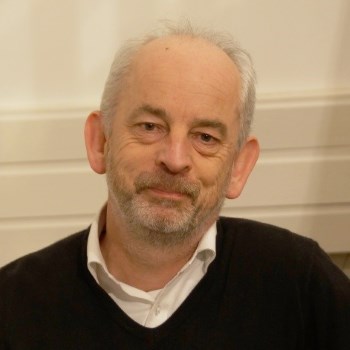
Professor Bob Tooze, Sasol UK Ltd, UK

Professor Bob Tooze, Sasol UK Ltd, UKFollowing a PhD in Chemistry from Imperial College London under the supervision of Nobel Laureate, Professor Sir Geoffrey Wilkinson, Bob joined ICI and has subsequently worked in the chemical industry for over 30 years. This career has spanned various businesses and locations but always in R&D. He joined Sasol Technology UK in 2002 and was made Managing Director in 2004. As part of a global Business reorganization in 2016, a number of Sasol Companies in the UK were amalgamated and Bob was made Senior Manager. He is currently Chair of Chemical Sciences Scotland, sits on the Scottish Industrial Biotechnology Development Group, the Energy Technology Partnership Advisory Group and the Governing Board of the Industrial Biotechnology Innovation Centre. Previously he served on the Scottish Science Advisory Council. He has wide experience of collaborative research having chaired the Industrial Board of a network of 40 of the leading Catalysis Laboratories in Europe and currently chairs the Industrial Advisory Panel of the UK Catalysis Hub. Bob holds an honorary Professorship in Chemistry at the University of St Andrews giving lecture courses in the field of catalysis. He is a Fellow of the Royal Society of Chemistry and was elected as a Fellow of the Royal Society of Edinburgh in 2013. |
|
| 00:00 - 00:00 |
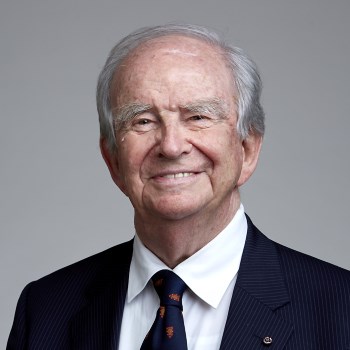
Professor Sir John Meurig Thomas HonFREng FRS, University of Cambridge, UK

Professor Sir John Meurig Thomas HonFREng FRS, University of Cambridge, UKJohn Meurig Thomas is a former Director of the Royal Institution (RI) of Great Britain, London, and a former Head of the Department of Physical Chemistry, and former Master of Peterhouse, University of Cambridge. He was educated in the University of Wales (Swansea). He taught and researched at Bangor and Aberystwyth for 20 years prior to being invited to Cambridge in 1978. His term as Director of the RI started in 1986. For over 50 years he has researched widely in solid-state chemistry and is best known for his pioneering work in various kinds of chemical electron microscopy, for his major contributions to heterogeneous catalysis, and for transforming the study and use of zeolites and other nanoporous materials. He has also elucidated the role of crystalline imperfections in governing the electronic, photochemical and photophysical properties of organic molecular crystals. His work on single-site heterogeneous catalysts has led to many practical and commercial advances in green conversions. John Meurig Thomas is a Fellow of the Royal Society. |
|
| 14:20 - 15:00 | Discussion | |
| 15:00 - 15:30 | Tea | |
| 15:30 - 17:00 | Discussion continued |
Chair
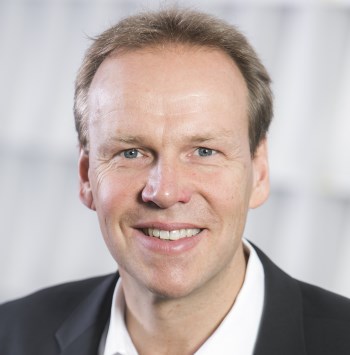
Dr Kai Baldenius, BASF SE, Germany

Dr Kai Baldenius, BASF SE, Germany
Kai Baldenius is a chemist by formation. After receiving a PhD from Hamburg University, he spent a post-doc research year at The Scripps Research Institute before he joined BASF in 1993. In BASF Kai started his career in the central research doing process development work for vitamins and other fine chemicals. He took over responsibilities in production, marketing and sales, before he returned to research. Since 2009, Kai heads the BASF biocatalysis research group.
| 00:00 - 00:00 |
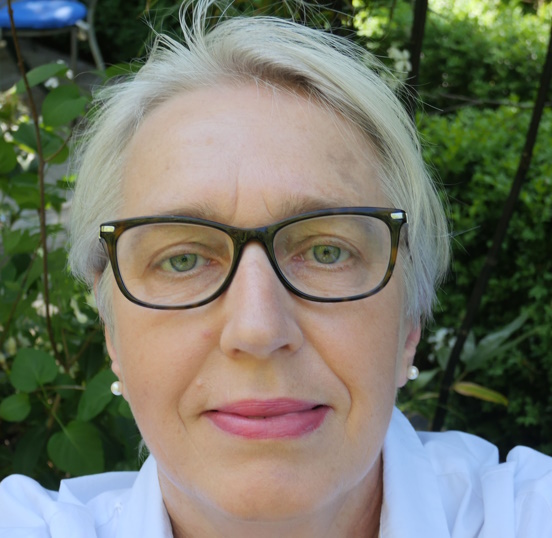
Professor Sabine Flitsch, University of Manchester, UK

Professor Sabine Flitsch, University of Manchester, UKSabine has a long-standing interest in the application of biocatalysis to glycobiotechnology. More recently, she has developed enzymatic processes for the synthesis of small, medium sized and large (protein based) glycoconjugates. Sabine obtained a Diploma in Chemistry from the University of Muenster, Germany and a DPhil degree from Oxford University under the supervision of Sir J E Baldwin. She spent three years of postdoctoral studies with Professor H G Khorana at MIT before returning to the UK to pursue her academic career at the Universities of Exeter, Oxford, Edinburgh and now Manchester, where she has held a Chair since 2004. She is currently associate editor of JACS AU, a new GOLD Open Access journal published by the American Chemical Society. |
|
|---|---|---|
| 00:00 - 00:00 |
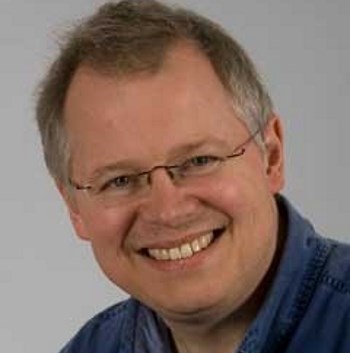
Professor John Woodley, Technical University of Denmark, Denmark

Professor John Woodley, Technical University of Denmark, DenmarkJohn M Woodley (originally from the UK) is currently Professor of Chemical Engineering at the Department of Chemical and Biochemical Engineering at the Technical University of Denmark (DTU, Lyngby, Denmark), a position he took up in 2007, following a career at University College London (UCL, London, UK). His research is focused on bioprocess engineering, design, intensification, scale-up and implementation. Aside from experimental studies the group also has interests in thermodynamics and kinetic modelling as tools to assist in techno-economic evaluation of bioprocesses. He has published over 170 ISI journal papers, 60 conference proceedings, 20 book chapters and 450 conference abstracts. He has industrial experience from ICI (UK) where he held one of the first two Academic Research Fellowships (1989-1994). He sits on several scientific advisory and editorial boards. In 2010 he was a joint recipient of the Rita and John Cornforth Award of the RSC (UK), in 2014 he was a Gambrinus Forum lecturer (TU Dortmund, Germany) and in 2016 he was the co-chair of the Biocatalysis Gordon Research Conference (USA). He is a Chartered Engineer, a Fellow of the Institution of Chemical Engineers (UK) and a Fellow of the Royal Academy of Engineering (UK). |
|
| 00:00 - 00:00 |
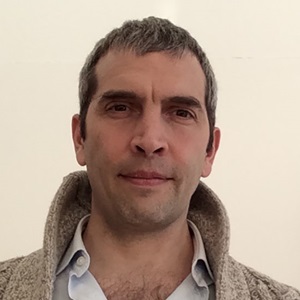
Professor Ben Davis FRS, The University of Oxford

Professor Ben Davis FRS, The University of OxfordBen Davis got his B.A. (1993) and D.Phil. (1996) from the University of Oxford. During this time he learnt the beauty of carbohydrate science under the supervision of Professor George Fleet. He then spent 2 years as a postdoctoral fellow in the laboratory of Professor Bryan Jones at the University of Toronto, exploring protein chemistry and biocatalysis. |
|
| 09:40 - 10:30 | Discussion | |
| 10:30 - 11:00 | Coffee | |
| 12:30 - 13:30 | Discussion continued |
Chair
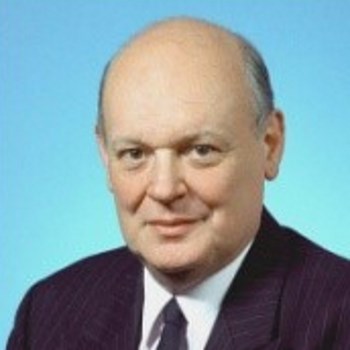
Professor Ray Allen, University of Sheffield, UK

Professor Ray Allen, University of Sheffield, UK
Ray’s research interests during his whole career have been to do with environmental improvement. In recent years the principal focus has lain at the chemistry/chemical engineering interface, particularly developing novel reactors and energy processes. This has included microfluidic devices, lab-on-a-chip and high throughput screening systems. Even more recently, microchemical engineering has been supplemented by work on large scale energy producing processes, including thermochemical cycles and CDU, for massive scale production of hydrogen respectively to fuel a potential hydrogen economy and to provide low carbon routes to transport fuels.
Such work focuses on atom efficient chemical engineering processes that are often catalytic and cyclic. In the case of a thermodynamically adverse reaction such as splitting water to manufacture hydrogen, only water and heat are put into the process and only hydrogen and oxygen are removed. The cycles under study include Sulphur Iodine, Copper chlorine and the Westinghouse hybrid sulphur process. He is also working, under the auspices of 4CU, on an EPSRC Programme Grant, of which he is PI, on the conversion of CO2 to fuels where his particular focus has been on whole process studies, electrochemical and plasma reactors.
| 00:00 - 00:00 |
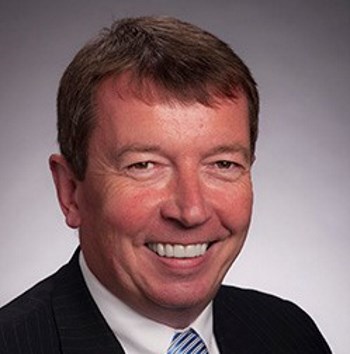
Dr Klaus Harth, BASF, Germany

Dr Klaus Harth, BASF, GermanyKlaus Harth is Vice President, Process Catalysis Research and responsible for BASF’s global R&D in Chemical Catalysis. Klaus Harth is located in Ludwigshafen, Germany. Since joining BASF in 1987, he has worked in different R&D and business roles including an assignment as Regional Business Manager Catalysts in Hong Kong, China and as Vice President, Environmental Catalysis Research in Iselin, NJ, USA. Klaus earned his PhD in Physics from the University of Kaiserslautern, Germany. |
|
|---|---|---|
| 00:00 - 00:00 |

Professor Ray Allen, University of Sheffield, UK

Professor Ray Allen, University of Sheffield, UKRay’s research interests during his whole career have been to do with environmental improvement. In recent years the principal focus has lain at the chemistry/chemical engineering interface, particularly developing novel reactors and energy processes. This has included microfluidic devices, lab-on-a-chip and high throughput screening systems. Even more recently, microchemical engineering has been supplemented by work on large scale energy producing processes, including thermochemical cycles and CDU, for massive scale production of hydrogen respectively to fuel a potential hydrogen economy and to provide low carbon routes to transport fuels. Such work focuses on atom efficient chemical engineering processes that are often catalytic and cyclic. In the case of a thermodynamically adverse reaction such as splitting water to manufacture hydrogen, only water and heat are put into the process and only hydrogen and oxygen are removed. The cycles under study include Sulphur Iodine, Copper chlorine and the Westinghouse hybrid sulphur process. He is also working, under the auspices of 4CU, on an EPSRC Programme Grant, of which he is PI, on the conversion of CO2 to fuels where his particular focus has been on whole process studies, electrochemical and plasma reactors. |
|
| 00:00 - 00:00 |
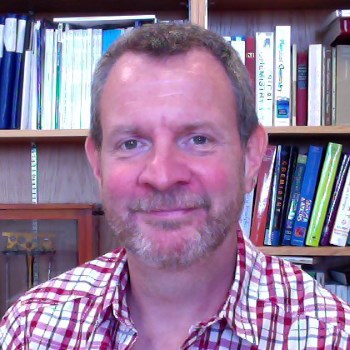
Professor Robin Bedford, University of Bristol, UK

Professor Robin Bedford, University of Bristol, UKRobin graduated in biochemistry at University of Sussex in 1991, before undertaking a DPhil in organometallic catalysis with Penny Chaloner also at Sussex. Following a postdoctoral position with Anthony Hill at Imperial College (1994–1996), he was appointed to a fixed term lectureship in inorganic chemistry at Trinity College Dublin, in 1996. In 1998 he moved to a lectureship in at the University of Exeter, where he was promoted to a Reader in Catalysis in 2003. Following the sad demise of Exeter’s chemistry department Robin moved to Bristol in 2005 as a Reader in Catalysis, and was promoted to Professor of Catalysis in 2008. He was awarded an EPSRC Advanced Research Fellowship (2004–2009) and in 2006 received the Royal Society of Chemistry’s Sir Edward Frankland Fellowship. In 2009 he received the Royal Society of Chemistry’s Homogeneous Catalysis Award. His research centres on the synthesis of new catalysts and the catalysis of novel organic reactions and lies at the interface of organic and inorganic chemistry. |
|
| 00:00 - 00:00 |
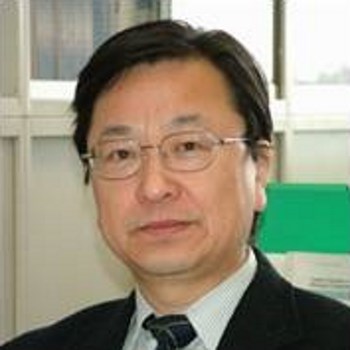
Professor Wataru Ueda, Kanagawa University, Japan

Professor Wataru Ueda, Kanagawa University, JapanProfessor Wataru Ueda is a solid-state catalyst chemist. His main research interests are catalytic selective oxidation of light alkanes over solid catalysts having controlled structures and developments of new solid-state catalysts for conversion of biomass-derived materials into chemicals. He conducted the EU(ERC)-Japan(JST) joint project on Novel cheap and Abundant materials for Catalytic bio-Mass conversion(NOVACAM). |
|
| 14:20 - 15:00 | Discussion | |
| 15:00 - 15:30 | Tea | |
| 15:30 - 16:30 | Discussion continued | |
| 16:30 - 17:00 | Overview and future directions |

